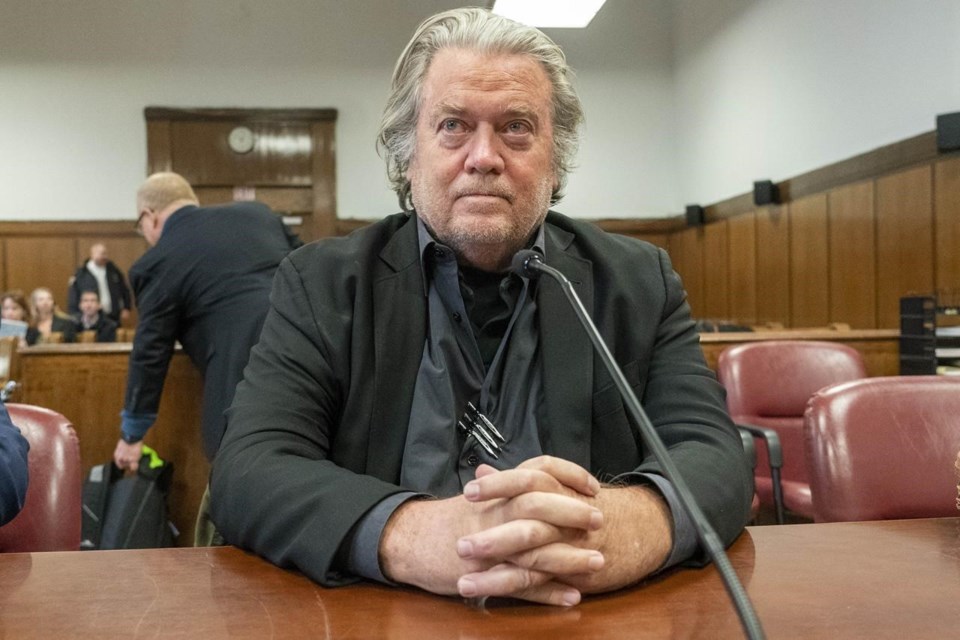WASHINGTON (AP) — A federal appeals court panel on Friday upheld the criminal conviction of Donald Trump’s longtime ally Steve Bannon for defying a subpoena from the House committee that investigated the attack on the U.S. Capitol.
A three-judge panel of the U.S. Court of Appeals for the D.C. Circuit rejected Bannon's challenges to his contempt of Congress conviction for which he was sentenced in 2022 to four months in prison. The judge overseeing the case has allowed him to remain free while he pursues his appeal.
Bannon's attorneys didn't immediately respond to an email seeking comment. His lawyers could ask the full D.C. appeals court to hear the matter.
Bannon was convicted of two counts of contempt of Congress: one for refusing to sit for a deposition and the other for refusing to provide documents related to his involvement in Trump’s efforts to overturn the 2020 presidential election.
Bannon had initially argued that his testimony was protected by Trump’s claim of executive privilege. But the House panel and the Justice Department contended such a claim was dubious because Trump had fired Bannon from the White House in 2017 and Bannon was thus a private citizen when he was consulting with the then-president in the run-up to the riot,
Bannon's lawyers argued at trial that he wasn't acting in bad faith, but was trying to avoid running afoul of executive privilege objections Trump had raised. The onetime presidential adviser said he wanted to have a Trump lawyer in the room for his appearance, but the committee wouldn’t allow it.
Bannon's lawyers told the appeals court that the conviction should be overturned because, among other reasons, they said the committee's subpoena was invalid. Bannon also argued that the judge that oversaw the trial wrongly quashed subpoenas seeking testimony and records from the committee's own members, staffers and counsel his lawyers argued could have bolstered his defense.
The appeals court said all of his challenges lacked merit.
“We conclude that none of the information sought in the trial subpoenas was relevant to the elements of the contempt offense, nor to any affirmative defense Bannon was entitled to present at trial," the judges wrote.
A second Trump aide, trade advisor Peter Navarro, was also convicted of contempt of Congress and reported to prison in March to serve his four-month sentence. Navarro has maintained that he couldn’t cooperate with the committee because Trump had invoked executive privilege. But courts have rejected that argument, finding Navarro couldn’t prove Trump had actually invoked it.
Alanna Durkin Richer, The Associated Press



